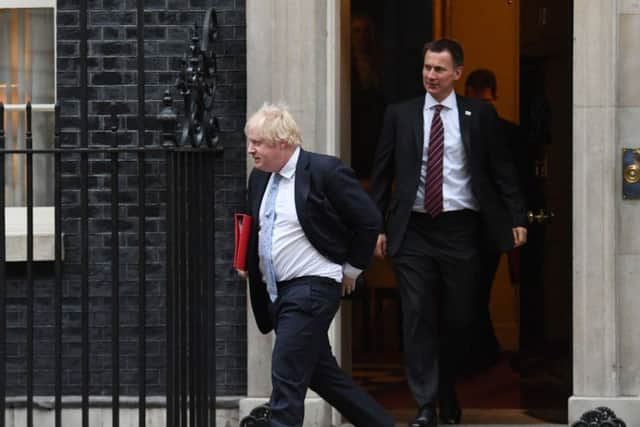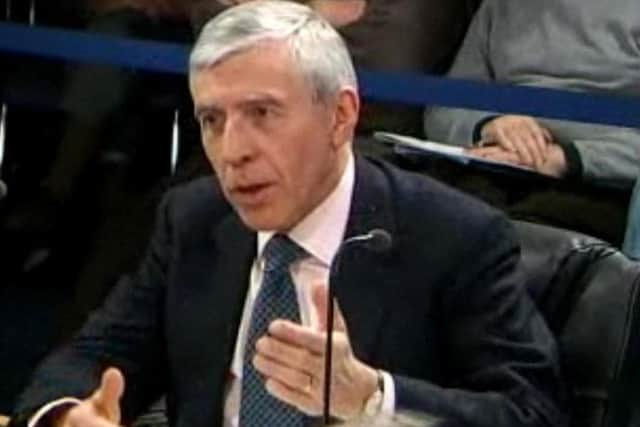The perils that will confront the next PM over Cabinet reshuffle - Peter Riddell


Jack Straw, who served at the top throughout the Blair and Brown years – and aptly entitled his memoirs Last Man Standing – has commented: “No one can know until they are faced with it whether they can make decisions. And not just one decision, with the luxury of a day to think about it, but a box full of decisions and another box full. I’m sure there are ways of testing that, but certainly in the British system, prospective Ministers are not tested for that.”
Advertisement
Hide AdAdvertisement
Hide AdThe attributes which help get a politician elected as an MP – successful local service and campaigning skills – and then making an impact in the Commons, debating and arguing, are not necessarily those which make good Ministers.


Being a successful Shadow Minister is very different from being in office, Most MPs have little experience of running large organisations or steering through big projects. And preparations for office are patchy. Party leaders have shown little interest in training and development, either before an election or afterwards.
The main, almost counter-intuitive, exceptions are those who have served as special advisers or researchers. They are often criticised as just knowing about the world of Westminster but that very experience – of working with Ministers and civil servants – can prepare them for the demands of office. Former special advisers have in the recent past risen further and faster after they are elected to the Commons than those without that background. The list is impressive. At one time in the first half of this decade, the key positions in both main parties were occupied by special advisers – David Cameron, George Osborne, Ed Miliband and Ed Balls, as well as Nick Clegg for the Liberal Democrats.
Advertisement
Hide AdAdvertisement
Hide AdThere are downsides too. Special advisers can be seen as liking the political game too much and lacking local roots. One of the problems for new Ministers is that they know they may only be in the same position for 18 months, before being moved on or dropped. And with so many junior Ministers – far more relatively than in other countries – there is pressure to make a quick impact, to impress superiors and gain media attention. Cabinet Ministers can expect to be in the same job for longer, but seldom long enough to see through a major project to completion.


So the key need for an effective Cabinet Minister is to be allowed to remain in post long enough to make an impact, as is the case with most Chancellors of the Exchequer. All but two of the last nine have served at least three years.
But the rapid turnover of Housing Ministers – one a year since 2010 – has hardly been conducive to continuity of policy. No sooner has a new Minister learnt the brief, than he ( no shes recently) is off.
Advertisement
Hide AdAdvertisement
Hide AdA new minister should define a few priorities where they really believe they can make a difference and then discuss the how with civil servants and outside groups. Ministerial clarity is the way to get the best out of civil servants.
The most successful policies benefit from consultation on implementation. There has not surprisingly been a lot of attention on policy failures or blunders but there have been also been successes – the national minimum wage, Sure Start Centres, pensions reform etc, all of which have benefited from a deliberative approach by Ministers.
But Ministers do not control their own fates. Their biggest test is often how they handle the unexpected, crises which suddenly appear out of nowhere. The key is to demonstrate publicly – to Parliament and the media – that you are in charge of events, not at their mercy. That means finding out what has gone wrong – not always straightforward – then announcing remedial action. It is also important for a Minister under pressure to have good relations with backbench colleagues. A Minister who has cultivated the Commons in good times can often receive support in rougher times.
All this adds up to a big test of resilience and stamina. Being a Cabinet Minister is a very demanding job, physically, intellectually and emotionally. You are required to take decisions at short notice on a wide variety of issues. There are few days off and families often take the strain.
Advertisement
Hide AdAdvertisement
Hide AdPolitical pressures and events soon identify who is an effective Cabinet Minister and who is ineffective. So no one being appointed this month should assume security of tenure.
Peter Riddell was Director of the Institute for Government until three years ago and is currently Public Appointments Commissioner. His book, 15 Minutes of Power – The Uncertain Life of British Ministers, is published by Profile Books.